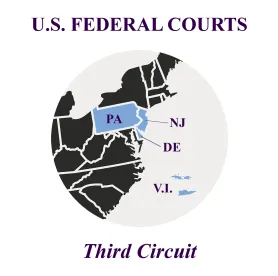Citizen suits begin with private parties sending “notice letters” to potential defendants apprising them that, if a specified action isn’t done within a certain period, litigation will be filed. A primary purpose of these letters is to allow parties to fix issues outlined in the letters outside of litigation. A recent Third Circuit Court of Appeals decision – upholding the dismissal of a claim under the federal Clean Water Act – provides guidance on what notice letters must include.
This decision in Shark River Cleanup Coalition v. Township of Wall, has three key takeaways for the regulated community:
First, notice letters need to outline with specificity what legal provision has been violated. The notice letter preceding Shark River Cleanup Coalition listed various state and federal legal provisions covering a wide variety of topics. The Third Circuit criticized this scattershot approach because it “left Defendant guessing as to the claimed violation.” Also notably, the Third Circuit implied that notice letters drafted by attorneys may be subject to a higher standard than those drafted by non-attorneys.
Second, a party receiving a notice letter must use reasonable efforts to find the location of the alleged violation, even when the party issuing the notice letter refuses to provide additional details. Here, the notice letter, which raised issues with erosion related to a pipeline, basically said that the violations occurred on a three-mile-wide plot of land. In contrast to its findings related to legal theory, the Court found that this was acceptable because the notice letter recipient could use their “superior ability to ascertain the location of the violation that might be at issue.” The court further found that the noticed party was required to maintain the pipeline under an easement and these obligations included inspecting the pipeline.
Third, notice letters remain important throughout citizen suit litigation. Here, even though the notice letter was arguably deficient, it caused the pipeline owner to begin a process which resulted in portions of the alleged violations being addressed. Nevertheless, because the notice letter was deficient, the Third Circuit upheld the lower court’s dismissal of the case for lack of jurisdiction.
Jurisdiction-focused decisions in citizen suit cases arise with some regularity. Other recent citizen-suit decisions include a West Virginia court’s decision that citizen suit claims need to proceed even where state regulators engage in post-notice letter state action and a Fourth Circuit decision holding that a notice of violation letter from a state regulator is insufficient to bar jurisdiction for a citizen suit.





 />i
/>i
